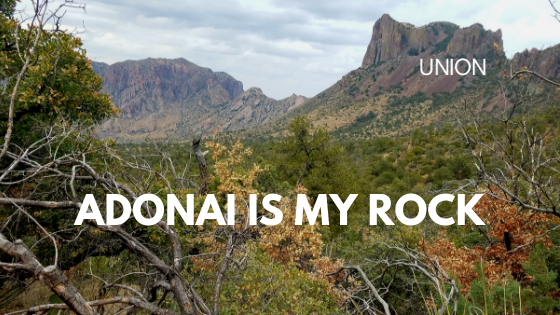Adonai is My Rock
Haftarat Ha’azinu, 2 Samuel 22:1–51
Dr. Vered Hillel, Netanya, Israel
The haftarah for Parashat Ha’azinu is David’s great hymn of thanksgiving, praising Hashem for providing protection and deliverance from all the dangers of his life and all the conflicts with his enemies. This lengthy song opens and closes with praise and thanksgiving. Sandwiched in between are vibrant expressions of both the circumstances of his low moments and of his triumph over the enemies. This hymn has various parallels in the Tanakh and plays an important role in Jewish worship. First, David’s song shares many things in common with the song of Moses in Deuteronomy 32, Parashat Ha’azinu. It also appears almost word-for-word in Psalm 18. Furthermore, the hymn parallels both the Song of the Sea in Exodus 15, which is read on the seventh day of Pesach, and Hannah’s prayer in 1 Samuel 1:1–2:10, which is read on the first day of Rosh Hashanah.
What is so amazing about David’s song that it would be made into a psalm and added to the psalter, or included three times in the liturgical calendar? To answer this question, let’s look at two terms used by David in the hymn—tzur (rock) and tamim (blameless, innocent, perfect).
David opens the hymn with the proclamation “Adonai is my rock (sela), my fortress and my deliverer.” The two epithets, rock and fortress, are drawn from the natural character of the landscape in Israel where steep and almost inaccessible rocks provided protection to David as a fugitive. Although David took refuge in physical rocks, he did not place his hope for safety in the rocky formations in Israel. He placed his hope in Adonai himself, who was David’s rock (tzur). Tzur is a rock that represents God’s immoveable firmness and his invincible protection. David calls God, “my Rock” (tzuri) in 2 Samuel 22:3 and 47a, depicting God as a sheltering rock (v. 3) and a source of personal safety (v. 47a). David also uses the term as an epithet equated with God himself. In 22:32 David asks, “Who is a rock besides our God…?” and later in v. 47b he praises Adonai saying, “Exalted be God, the Rock of my salvation!”
David uses the second term, tamim, to present the theology of reward and punishment, applied both personally and generally. David says of himself, “I also was blameless (tamim) before him and kept myself from iniquity” (22:24). David is not stating that he is perfectly righteous or holy before Adonai, because he wasn’t. He is making a comparison between the righteousness of his own deeds and endeavors and the unrighteousness and wickedness of his adversaries. David says he is blameless because he strove earnestly and sincerely to walk in the way of Hashem and to keep the commandments (22:21–25). The general theology of reward and punishment is expressed in the impersonal remarks, “with the loyal you show yourself loyal; with the blameless (tamim) hero, you show yourself blameless; with the pure you show yourself pure, but with the crooked you show yourself shrewd. You deliver a humble people, but your eyes are upon the haughty to bring them down (22:26–28). David was blameless/innocent because Adonai, who is perfect (tamim) in his way, is David’s strong fortress, which keeps David’s way perfect (tamim; 22:33).
A comparison with the song of Moses in this week’s parashah also establishes this theological point. Both the song of Moses in Deuteronomy 32 and the song of David in 2 Samuel 22 use the terms tamim to emphasize integrity, blamelessness and perfection and tzur to emphasize stability, power and protection. After stating that he will proclaim the name of Adonai, Moshe declares, “The Rock, his work in perfect (tamim), and all his ways are just,” while Israel is “a perverse and crooked generation” (Deut 32:4-5) that “scoffed at the Rock of [their] salvation” (32:15) and had “forgotten the Rock that fathered [them]” (32:18). As a result, Adonai, their Rock, gave them over to their enemies, “because their rock is not like our Rock” (32:30–31).
In our haftarah, David also glorifies Adonai as a rock whose way is blameless or perfect (tamim; 2 Sam 22:31) and juxtaposes this “Rock” with all other gods (22:32). However, David, unlike Israel, remains steadfast and blameless. Instead of scoffing or forgetting the Rock, David takes shelter in the Rock (22:3). David also proclaims Adonai as acting blameless with the blameless hero but acting shrewd with the crooked (22:26–27). David is rewarded by Adonai, who kept David’s way perfect or secure (tamim; 22:33).
The similarities between the two songs are remarkable. However, the contrast between the reactions to the Rock of David and Israel is also remarkable. Both songs portray Adonai as a mighty and sustaining Rock, whose way is tamim. However, David remains faithful and does not forget the Rock of his strength. He does not rebel against him even through his trials and adversities, or through his success. By contrast, the people of Israel are a rebellious generation that has forgotten Adonai, the faithful and immovable Rock whose work is perfect. The song of Moses and the song of David show us two different paths, as one commentator puts it: “a God-centered way of remembrance and humility, and a self-centered way of forgetfulness and pride.” Each of us has a choice as to how we respond to the Rock in various situations in our lives. We can be like David and choose to remember that Adonai, whose way is perfect, is our Rock and strong fortress, or we can be like Israel in the wilderness and forget the Rock the fathered us. Each day we must decide which path we will walk.
My prayer is that we will all be like David and seek to walk in the way of Hashem and to keep his commandments. Then we will remember that Hashem is our Rock and strong fortress and will keep our way blameless.

